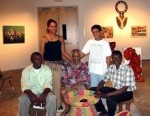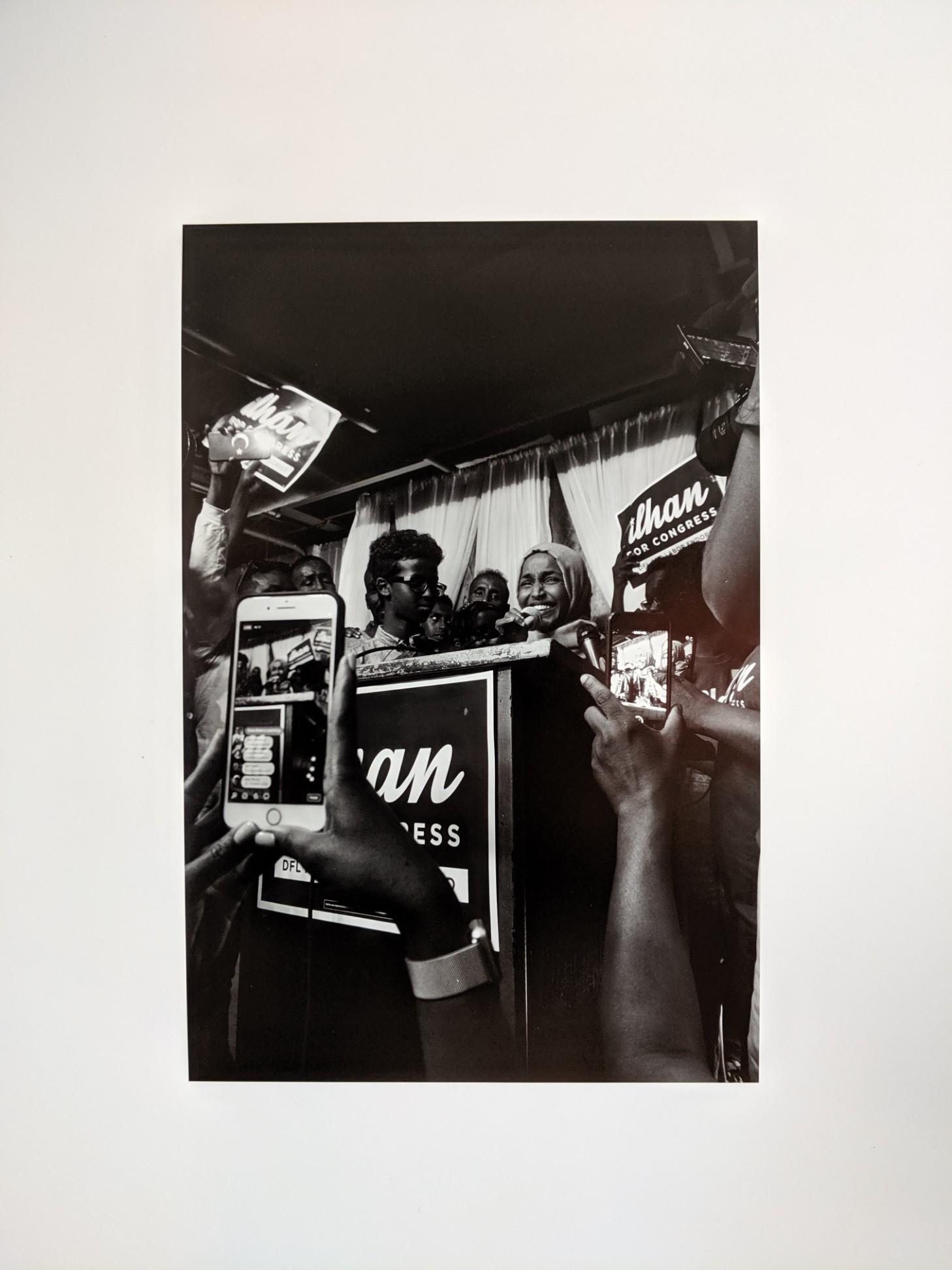
"I think it’s more beneficial to be embraced by the audience of the Walker (Art Center) than it is to hang on the walls of the Walker," said photographer, Bill Cottman, responding to the idea of whether or not he’d like to see Africa, Daily Life art exhibit presented at a mainstream gallery. Competent and resourceful, multimedia artist, Mimi Girma adds, "I think the Walker would be lucky to have this exhibit in their gallery."
For the month of May, GOSSO displayed their collection at the Mira Gallery in Bloomington, Minnesota. GOSSO represents an assemblage of independent artists working together with the objective of exhibiting their work. The exhibit contemplated the life many Africans leave behind when they emigrate from their homelands to the United States.
Mira Gallery, located in a small, careworn, single-level building, El Colegio, provided a viewing for nine artists who created over 80 pieces of artwork ranging from oils painted on canvas to photography to three-dimensional work using wood or fabric or other natural elements.
On the afternoon of May 27th, half a dozen of the artists met with one another to talk to the public about their work. Usually, discussion centered on artistic expression and experience. Mankwe Ndosi, artistic and managing director at the Center for Independent Artists opened the dialogue. "I think this whole exhibit has very much been about improvisation," said Ndosi, allowing the artists to speak freely about their work.
Once Nigerian John Adesaji began talking, all eyes centered on him. He sat directly in front of some of his paintings, Life in the Village and Market Square. Being an artist in Africa differs from working as an artist in the United States. Adesaji recounted, "the environment is different. Back in Africa, when you look around, you see some drama. There is so little (material goods), people fight for what is available. There’s more time in Africa to produce art (because) there’s less work (for hire)," Adesaji said.
Painter, Aziz Osman who left Somalia first for Europe 20 years ago, then immigrated to the United States observed, "in Europe, you can find help. In the U.S. you can not find help. We never had a problem (in Europe) from lack of support. Gallery shows are very expensive."
These variable factors, that is, the economics of the community and the commitment of society toward sustaining fine arts, affect the artist’s output, so too, does the act of emigrating, itself. "At home, you have a history, an identity. Here, nobody knows your name," commented one artist.
Mimi Girma, one of the curators of the show, observed how the volatile climate of her home country changes even how she or others might view her, thereby regarding her work in a different light. "The very identity of being an Ethiopian is being questioned. I have a country that is falling apart," Girma lamented.
Yet Girma as well as the others recognize the strength in numbers. “One person can do nothing. When you have five or six people, then you can work together,” said Osman as he considered the importance of the GOSSO collective. Girma described how the collective took root at the Fringe Festival, a theatrical festival held in the Twin Cities every summer that includes other fine art endeavors. At the Festival, many artists had opportunity to meet and make connections.
"Most artists want to be seen, want to be exhibited and have their work recognized as having value," said Cottman, the sole African-American in the group. The opportunity to network as well as the desire to show the public their vast creative expression lead to the collaboration of artists who exhibited their work at the Mira Gallery.
Koffi Mbairamadji, native to Chad and the other curator of the show summed up the thoughts held by many others, "seeing this artwork here makes me feel good."
Read an interview with Mimi Girma here
About Susan Budig
Susan is based in Minneapolis and reports on general assignments for Mshale with a focus on entertainment. In addition to reporting, she is also a writer, poet, teacher and coach.
- Web |
- More Posts(169)








